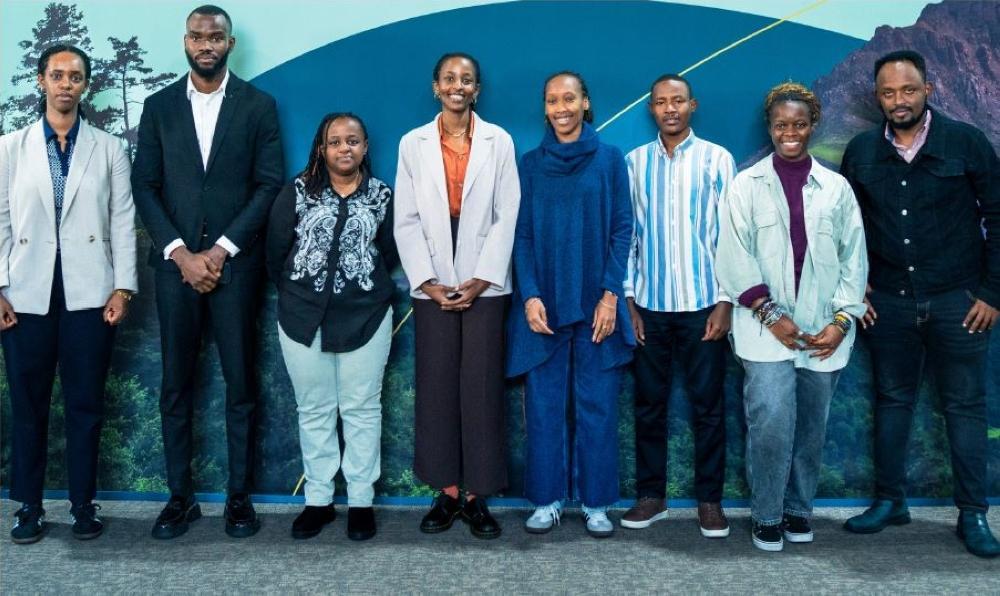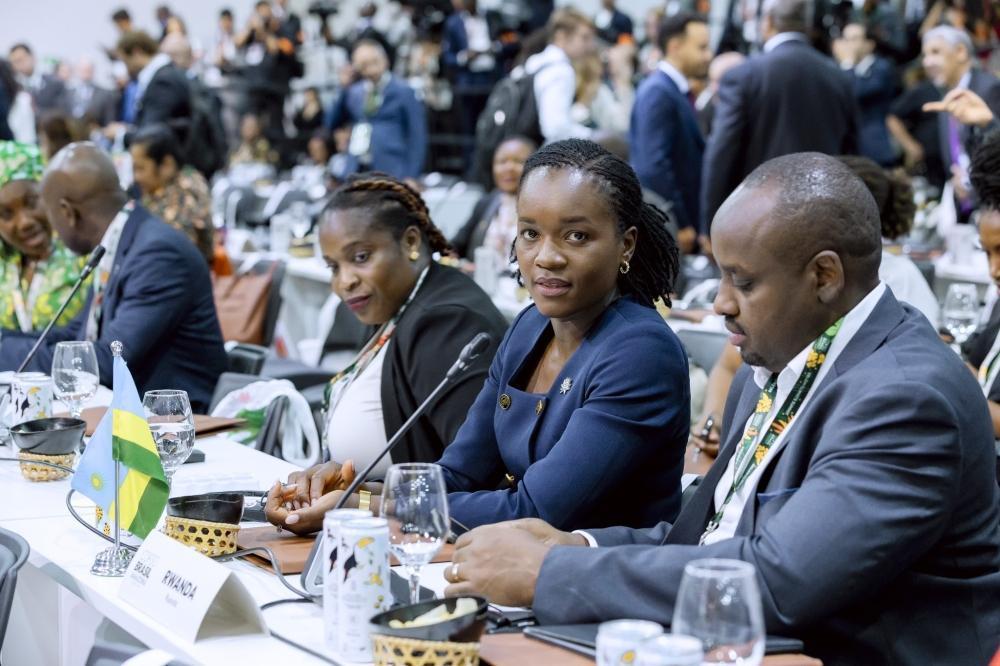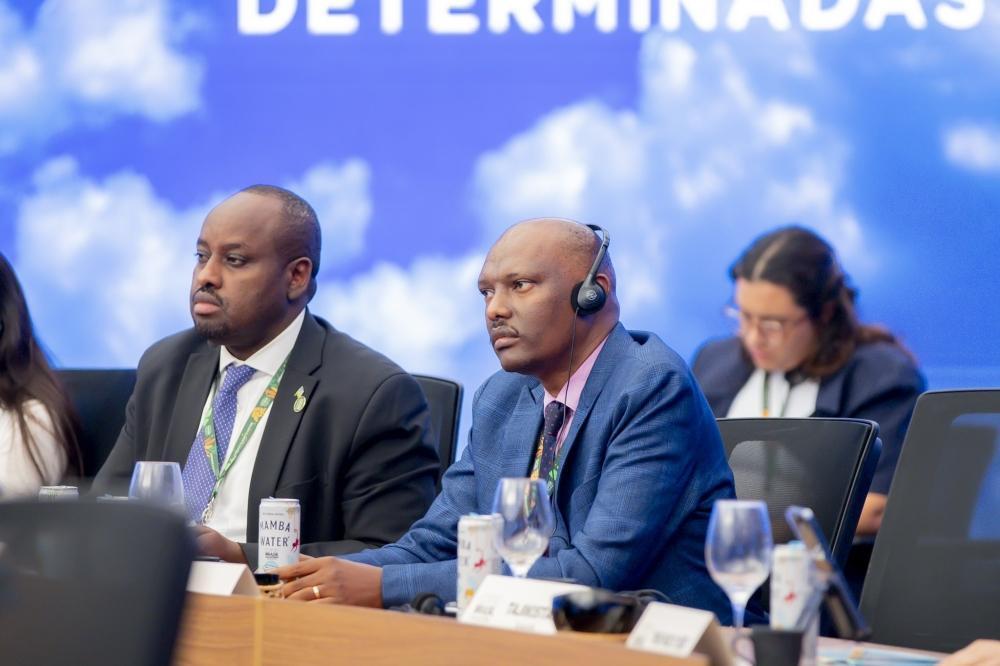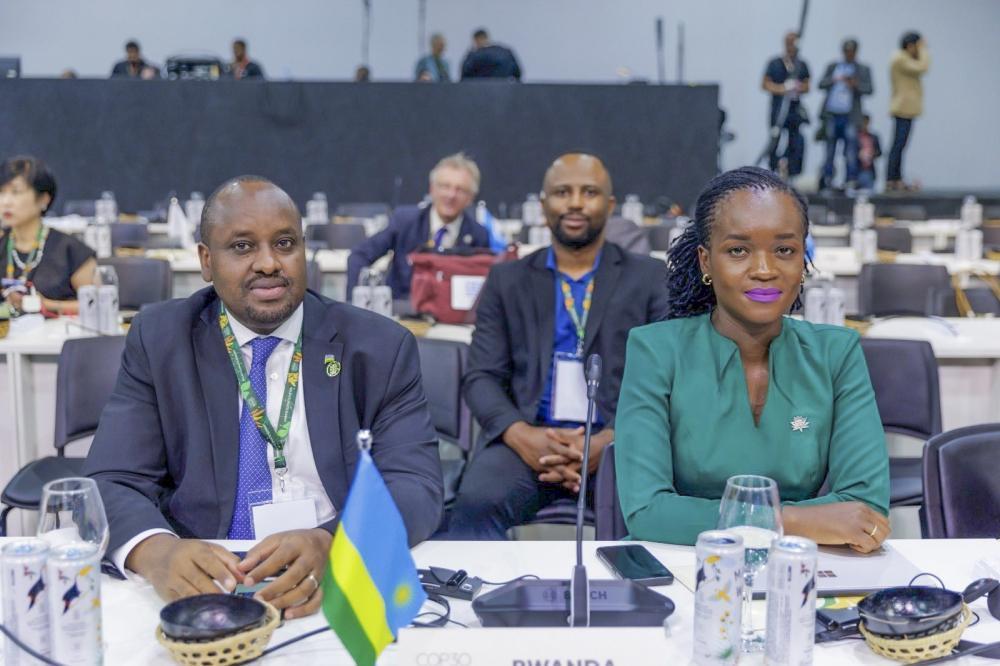Africa-Press – Rwanda. A group of Rwandan negotiators have outlined their expectations for the ongoing 30th United Nations Climate Change Conference (COP30) in Belém, Brazil.
The group includes Olivier Ishimwe, Grace Ineza Umuhoza, Jean-Bosco Nkurunziza, Eva Peace Mukayiranga, and Sandra Isingizwe.
Their focus is on key negotiation areas, including climate finance, loss and damage, action for climate empowerment, transparency, Article 6 of the Paris Agreement, and adaptation.
The group prepared a position paper covering climate finance, loss and damage, action for climate empowerment, transparency, Article 6 of the Paris Agreement, and adaptation. Their recommendations draw from hands-on experience in the climate negotiation process, according to Umuhoza, founder of the Green Protector.
1. Adaptation
The UNFCCC defines adaptation as changes in processes, practices, and structures to moderate damages from climate change and respond to current and future impacts.
Article 7.2 of the Paris Agreement recognises adaptation as a global challenge, considering the urgent needs of developing countries vulnerable to climate change.
The Global Goals on Adaptation (GGA) aim to enhance adaptive capacity, strengthen resilience, and reduce vulnerability.
COP29 adopted the Baku Adaptation Roadmap to operationalise the UAE Framework for Global Climate Resilience agreed at COP28.
Rwandan activists expect COP30 to conclude the UAE-Belém work programme on indicators, discuss a new adaptation finance goal, and review progress on National Adaptation Plans (NAPs), which outline climate risks, priorities, and financing needs.
Integrating nature-based and ecosystem-based adaptation into NAPs remains a priority.
2. Action for climate empowerment
Action for Climate Empowerment (ACE) under the UNFCCC and Paris Agreement empowers society to engage in climate action and promotes behavioural and systemic change.
At COP29, a decision addressed financial needs and challenges faced by developing countries in implementing ACE activities.
COP30 will mark the mid-term review of the Glasgow Work Programme, with activists urging developed countries to provide technical and financial support immediately to ensure effective implementation.
3. Transparency
Transparency involves reporting and reviewing climate data, including GHG emissions, adaptation efforts, and support received. This builds trust and accountability.
The Enhanced Transparency Framework (ETF) replaced the MRV system and became fully functional in 2024. Parties are now transitioning to ETF and submitting Biennial Transparency Reports (BTRs).
Developing countries continue to face challenges in collecting data, building institutional capacity, and tracking emissions.
Activists emphasise the need for technical and financial support under both the Convention and the Paris Agreement, and for the extension of the Consultative Group of Experts (CGE) mandate beyond 2026.
4. Climate finance
At COP29, developed countries committed to delivering $300 billion annually for climate action in developing countries by 2035.
However, developing countries called for funding in the trillions. As a compromise, the “Baku to Belém Roadmap to $1.3 Trillion” reflects estimated needs by 2035.
Replenishment to financial entities must ensure predictable, scaled-up finance for adaptation, mitigation, and loss and damage.
Negotiators highlight the need to discuss debt relief, concessional finance, multilateral development bank reforms, and prioritisation of public and grant-based finance, while addressing access barriers such as high costs and complex procedures.
5. Article 6 of the Paris Agreement
Article 6 details how countries can cooperate to achieve NDCs while promoting sustainable development.
Countries can trade Internationally Transferred Mitigation Outcomes (ITMOs) to meet emission reduction targets and access investment, technology, or capacity support.
The UN Crediting Mechanism allows trade under centralised oversight, while countries may also provide support without trading credits. COP30 discussions will focus on strengthening capacity and deepening international cooperation under Article 6 which environmentalists expect.
6. Loss and Damage Fund
The Loss and Damage Fund supports countries most vulnerable to unavoidable climate impacts.
COP28 operationalised the fund, and COP30 negotiators expect guidelines to quantify economic and non-economic loss and damage. Activists stress that financing must reflect the actual needs of developing countries and ensure transparency.
Resource mobilisation begins in 2027, with submissions open until January 15 2026.
Rwanda advocates for accessible, predictable, and equitable climate finance as well as a Loss and Damage Fund that meets the needs of the most vulnerable. Capacity building and technology transfer that empowers domestic climate action must also be prioritized.
Bernadette Arakwiye, Rwanda’s Minister for Environment, stated: “As we move from Baku to Belém, Rwanda looks forward to agreeing on a clear roadmap to deliver the $300 billion annual commitment while charting a path towards a more realistic goal of $1.3 trillion per year by 2030.”
For More News And Analysis About Rwanda Follow Africa-Press









